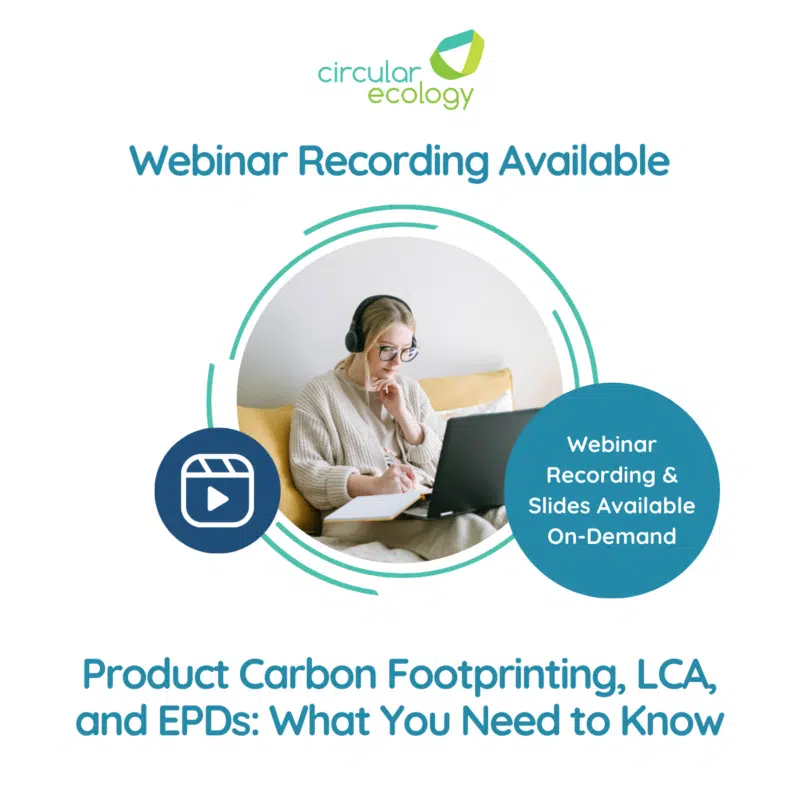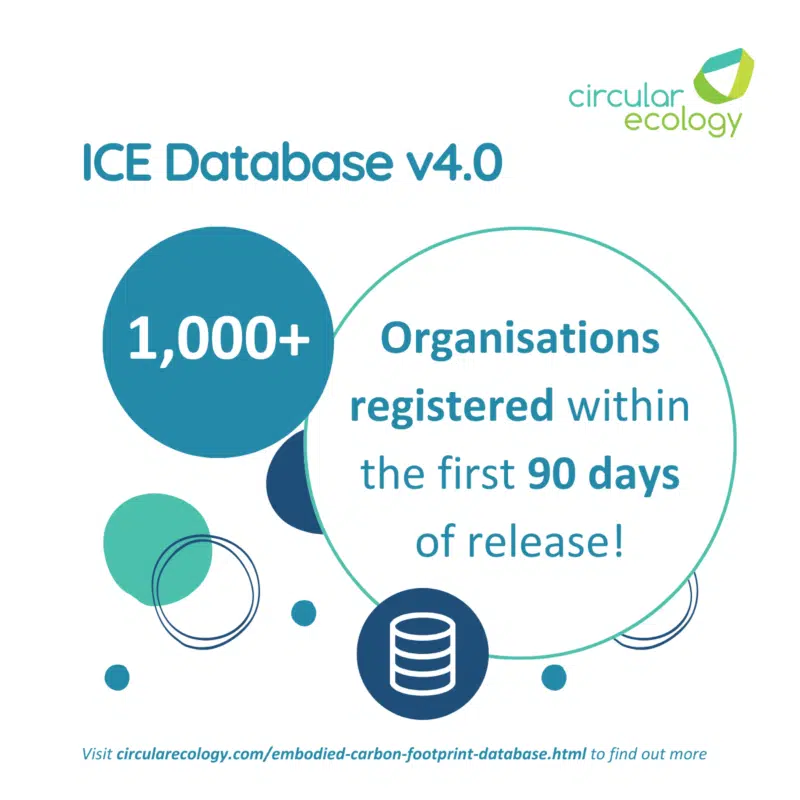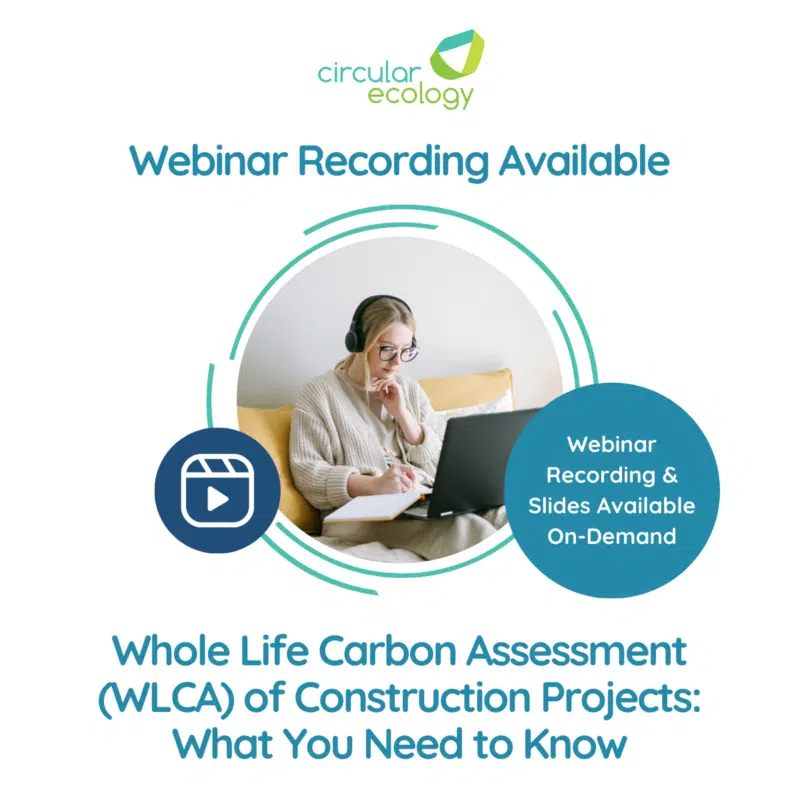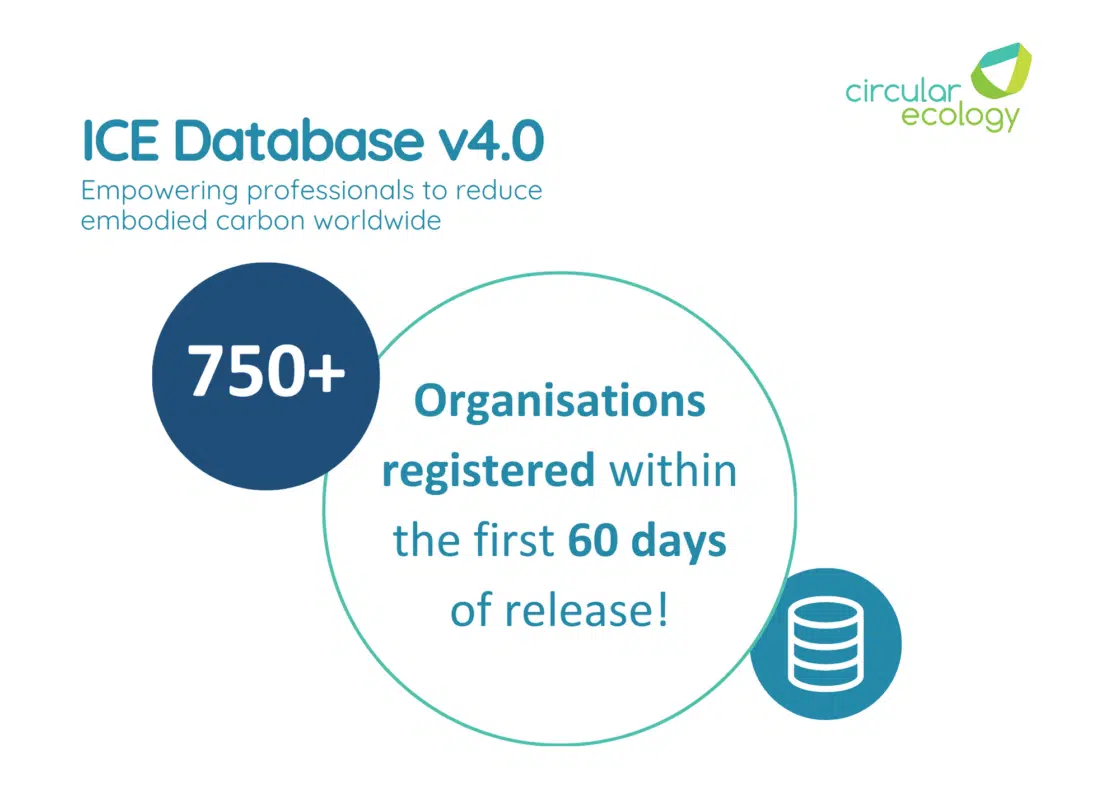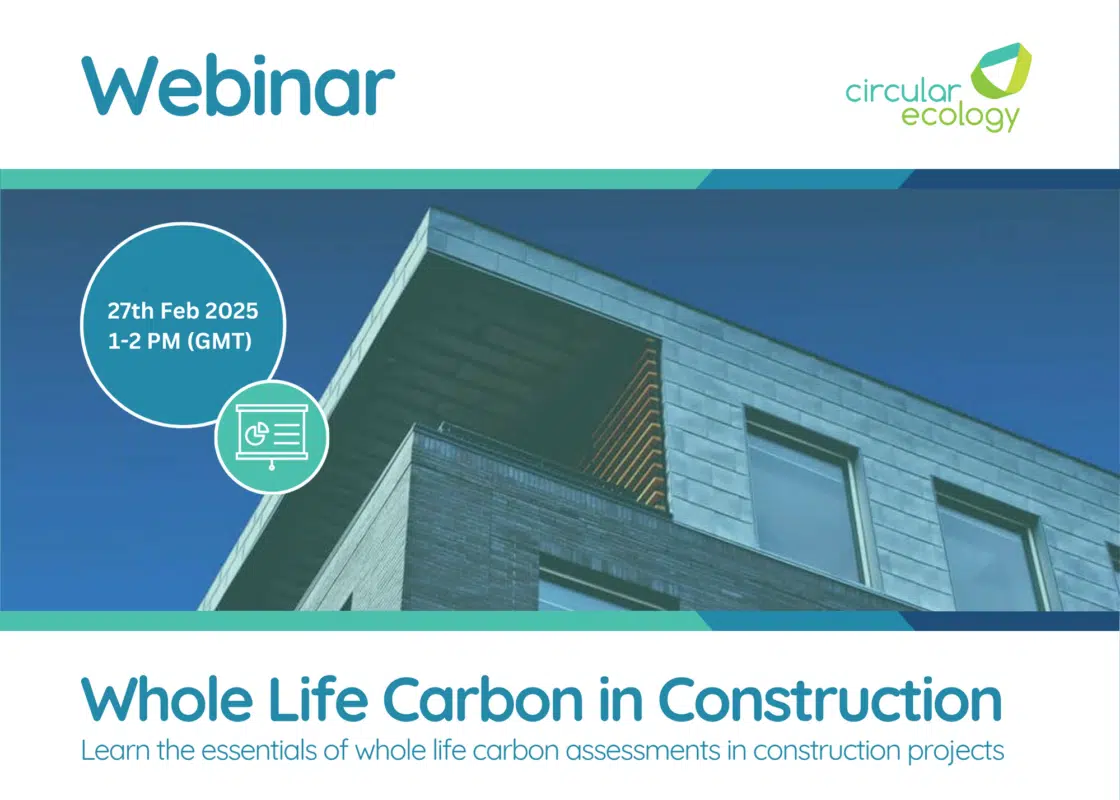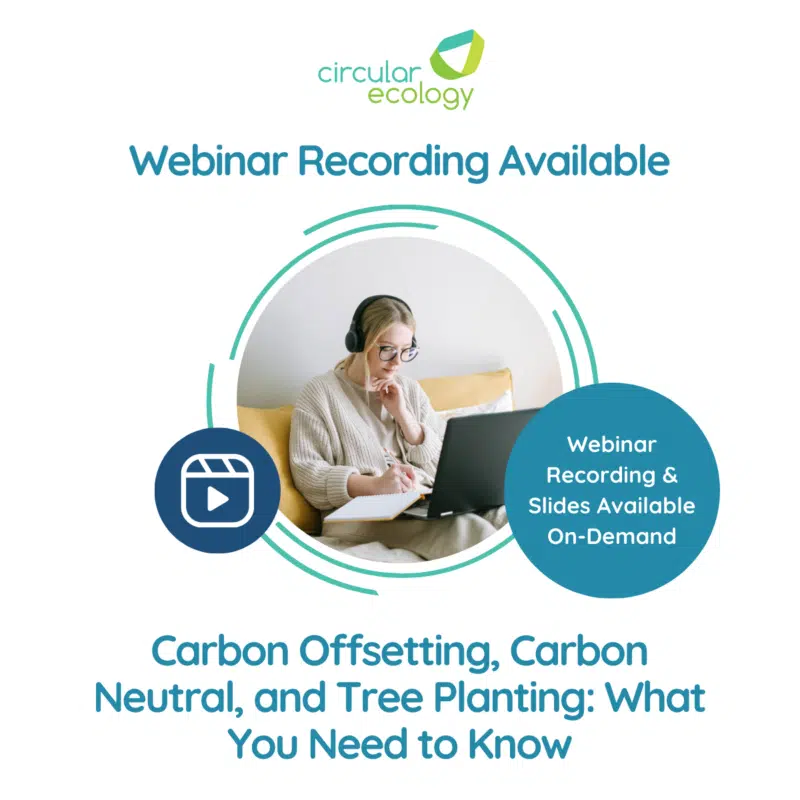On Thursday, 22nd May, Circular Ecology hosted the third instalment in the ICE Database Insights webinar mini series: Are All EPDs Created Equal? The session, hosted by Dr Craig Jones (Managing Director) and Joe Rouse (Senior Sustainability Consultant), explored some of the main differences found in EPDs, and the implications for the ICE Database and […]
Category Archives: Embodied Carbon
On Wednesday, April 30th, Circular Ecology hosted the second session of our ICE Database Insights webinar series: ICE Analytical Review Processes. The session, hosted by Jon Burrow (Head of Carbon Accounting), Sophie Vernon (Senior Sustainability Consultant), and Charlie Zhu (Senior Sustainability Analyst), explored the growing importance of robust data analysis processes when creating generic embodied […]
On Thursday, April 10th, Circular Ecology launched the first session of our ICE Database Insights webinar series with an introduction to data quality scoring. This webinar, hosted by Jon Burrow (Head of Carbon Accounting) and Charlie Zhu (Senior Sustainability Analyst), explored the growing importance of data quality in carbon footprinting and how it underpins the […]
On Wednesday, April 3rd, Circular Ecology delivered our fourth webinar of 2025: Product Carbon Footprinting, LCA, and EPDs for Manufacturers and Suppliers: What You Need to Know In this session, our speakers – Dr Craig Jones, Managing Director, and Joe Rouse, Senior Consultant – explored the fundamentals of product level carbon assessments and their role in […]
The ICE Database is experiencing unprecedented adoption, with over 1,000 unique organisations registered within just 90 days of release. This rapid uptake identifies the growing demand for accessible embodied carbon data and reaffirms the ICE Database’s role as a trusted resource for professionals working to measure and reduce carbon footprints. Who’s Using the ICE Database? […]
On February 27th, Circular Ecology hosted another free webinar. This time, the topic focused on the Whole Life Carbon Assessment (WLCA) of Construction Projects. Led by Dr Craig Jones, Managing Director, and Edwin Lowe, Delivery Manager, the session introduced WLCA and embodied carbon in buildings. Throughout the webinar, we addressed some key questions: What is embodied […]
The ICE Database v4.0 launched in December 2024. Within the first 60 days of launch, over 750 unique organisations have registered to use it for commercial applications. This milestone reflects the growing demand for reliable embodied carbon data as industries work toward net-zero and sustainable development. Since 2005, the ICE Database has supported professionals in […]
Join Circular Ecology for a webinar on Whole Life Carbon Assessments (WLCA) in Construction Circular Ecology invites you to a free upcoming webinar on the 27th of February, where we will provide a clear and practical overview of WLCA in Construction. What will this webinar cover? What is embodied carbon? What is a whole life […]
On February 6th, Circular Ecology hosted an engaging and insightful webinar focused on carbon offsetting, carbon neutrality, and tree planting initiatives. Led by Dr Craig Jones, Managing Director, the session introduced these sustainability strategies, along with their potential advantages and challenges. During the session, key questions were addressed: What are carbon offsets and how do […]
Circular Ecology would like to invite you to a webinar on the 6th of February, where we will provide an overview of Carbon Offsetting, Carbon Neutrality, and Tree Planting initiatives. This webinar will cover: What is a carbon offset? How do carbon offset credits work? What are the wider benefits of offset projects? What is […]




